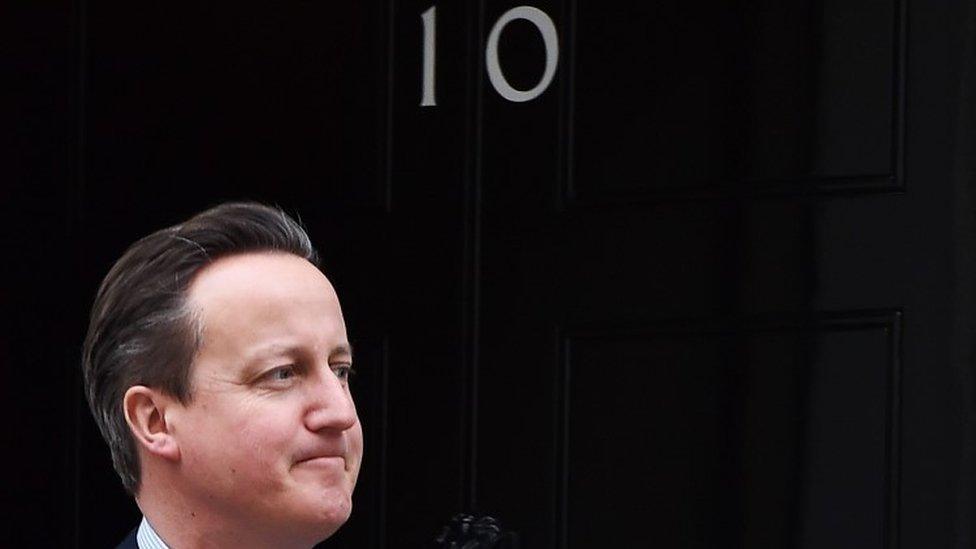EU deal and the need to compromise
- Published
Prime minister responds to BBC political editor Laura Kuenssberg's question
He wanted his party to stop banging on about Europe - to escape the bad tempers of Tory history.
But David Cameron like all political leaders, was trapped by his own party's past, and sought a way out, promising a renegotiation and then a public vote on our place in the EU.
But with the deal now emerging, he is perhaps, trapped again?
This deal is not so awful that he could justifiably throw up his hands and walk away. One cabinet minister pondered - is Britain really going to flounce out, be the teenager that goes to their room, and slams the door and then sulks, wondering what to do?
But the deal is not so good that he can argue truthfully that he is keeping every one of his election promises.
In most walks of life it's well, rather normal, to admit that negotiations mean compromise - not so, perhaps misguidedly, in politics, where David Cameron was repeatedly reluctant today to accept he's had to budge at all.
But while the handful of Eurosceptic cabinet ministers are still under orders not to speak out, the very fact that there is now a deal in black and white, even in draft, allows the Prime Minister to start making his case.
Fair? Effective? In the end you'll decide. And for most voters it will be the broad contours of this campaign - not the details of this deal that make the difference.
- Published21 January 2016
- Published21 January 2016
